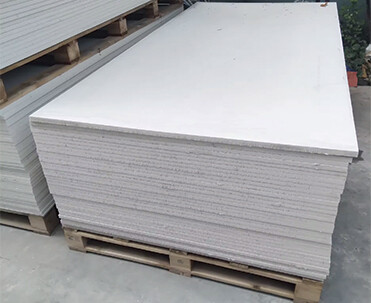NEWS
Categories List

Calcium silicate boards, revered in construction and industrial spheres, are a fusion of silica and calcium, with the calcium silicate board density standing as the key to determining their prowess. Let's delve into the intricacies of this vital parameter.
Performance Implications of Density Variations
Mechanical Strength
Compressive Strength: Density directly correlates with compressive strength. Higher-density boards exhibit superior resistance to compression, which is ideal for applications prioritizing structural integrity.
Flexural Strength: Beyond compressive strength, density impacts flexural strength. Optimal density levels enhance bending resistance, which is crucial in dynamic construction and industrial settings.
Thermal Insulation Properties
Conductivity and Density Relationship: The interplay between density and thermal conductivity dictates insulation capabilities. Higher-density boards often boast lower thermal conductivity, which is ideal for temperature-regulating applications.
Energy Efficiency Considerations: Understanding the correlation between density and thermal insulation is pivotal for optimizing energy efficiency. Proper density calibration ensures boards contribute to a building's overall energy performance.
Applications and Industry Standard
Construction Sector
Structural Applications: Calcium silicate boards shine in structural applications, offering optimal density and mechanical strength for diverse architectural elements.
Fire Resistance Standards: Board density significantly influences fire resistance, meeting industry standards for paramount fire protection in structures.
Industrial Usage
High-Temperature Insulation: Industries in high-temperature environments rely on calcium silicate boards. Their density ensures resilience in extreme temperatures, which is vital in sectors like metallurgy and petrochemicals.
Chemical Resistance Requirements: In chemical-intensive environments, board density is crucial for resistance to corrosive substances. Adhering to industry-specific chemical resistance standards ensures board longevity.
Leave A Reply


